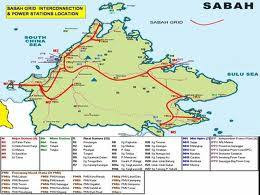
Energy, Green Technology and Water Minister Datuk Seri Peter Chin Fah Kui today pledged that electricity interruption in the state will be considerably reduced by year-end.
Electricity supply in Sabah has always been an issue and Prime Minister Datuk Seri Najib Tun Razak had set a System Average Interruption Duration Index (Saidi) target that will track the number of minutes consumers experience power
failure in the state.
Chin assured that Sabah would attain the System Average Interruption Duration Index (Saidi) target of 700 minutes/consumer annually, this year, or resign from office.
Sabah recorded a high rate of 2,870 minute/consumer annually at the end of 2009.
"Because it's my Key Performance Indicator (KPI), so it's up to the Prime Minister. But that (to resign) will be the right thing to do.
"We will work towards achieving the target but we have to wait until Dec 31, 2010 to know if we have succeeded. And, we will be transparent.
"If we fail to reach the target, then, at the time, you can fire me," he told reporters after launching the commercial operations of the first 65 Megawatt gas turbine unit for Ranhill Powertron II here today.
Chin said RM468 million has been allocated for the purpose of achieving the target.
In his speech earlier, Chin sympathised and apologised to all Sabahans who suffered from frequent electricity disruption.
"I don't think its very fair at this juncture to judge us, we are just delivering the first phase of the 65 Megawatt plant for the 190Mw combined cycle power plant project today," he explained.
"People sms me, I feel bad. This is not something we planned for, we don't plan for electricity shortages. But I am very committed to solve the issue, but you have to give me time, that is until the end of this year," he said further.
Demand for electricity supply in Sabah is 750 Megawatts, and with the additional 65 Megawatts launched today, the state's capacity to generate electricity is 800 Megawatts.
However, an extra 20 to 25 per cent of power supply is needed to mantain reliable supply.
courtesy of Malaysian Digest




No comments:
Post a Comment